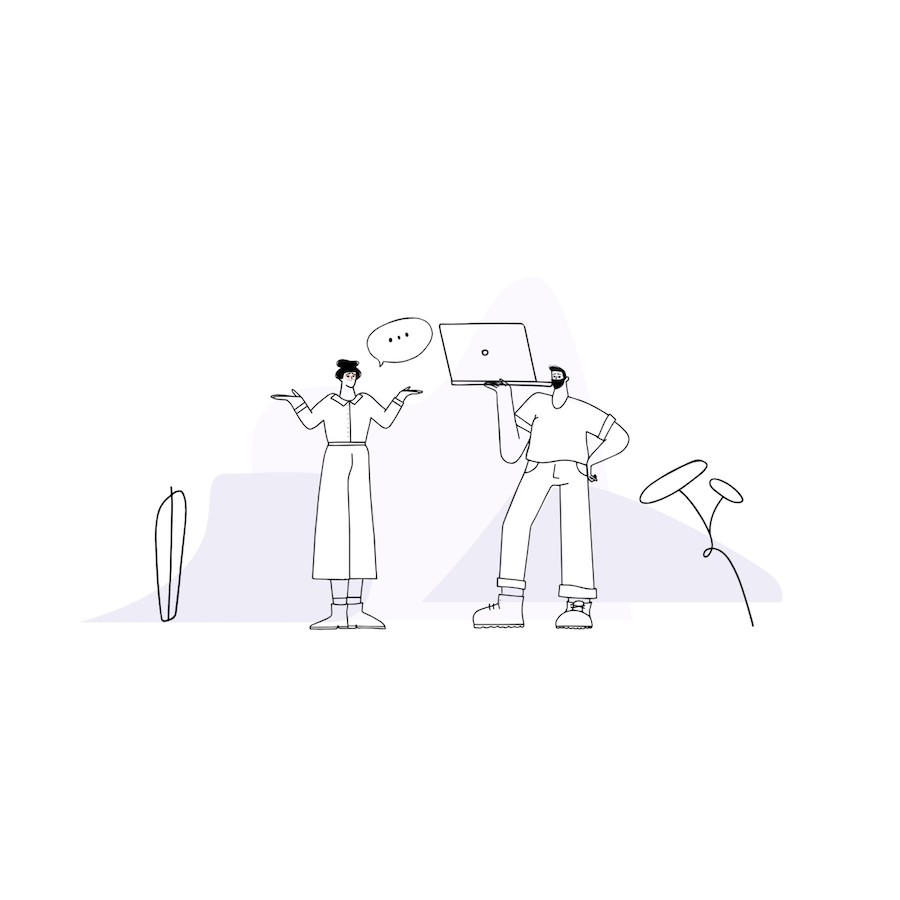
The Problem Every Business Owner Faces
AI tools like ChatGPT are powerful but limited - they don't know your business, your products, or your customers. They give generic answers when your customers need specific expertise about what you do. Your company's most valuable knowledge is trapped in emails, documents, databases, and your employees' heads, completely inaccessible when customers need help at 2 PM on Sunday or when your best people are busy.

The Solution That Changes Everything
We unlock this knowledge with AI Chat Assistants that can rapidly answer questions about your products and procedures. Whether it's for your customers who need instant answers or your internal team who shouldn't waste time searching for information they've found a hundred times before. These aren't the generic chatbots of the past, they're powered by the world's most intelligent AI models that can answer with your tone and unique expertise.

Built for Growth, Security, and Peace of Mind
Your AI assistant runs on Google Cloud infrastructure, the same platform that powers billions of searches every day. It scales automatically as your business grows - whether you're handling 10 questions a day or 10,000. We use ChatGPT's latest models for intelligence, but your business data stays secure and private. You're not experimenting with your company's future, you're using proven technology that just needs to learn about your business.

Turning Questions Into Sales
The secret sauce to a great AI Assistant is building custom logic that understands the intent behind every question and guides customers toward the right solutions. We can ask follow-up questions, understand specific needs, and recommend your products or services. Every conversation becomes a potential sale, handled with the expertise of your best salesperson.

Why Your AI Assistant Won't Sound Like a Robot
With a background in technology marketing, copywriting and generative AI, I understand how to build AI tools that sound and feel human, not robotic. Your customers will get answers that match your company's tone and expertise level, not stilted responses that scream "I'm talking to a machine." The difference is in the training, we don't just dump your documents into ChatGPT and hope for the best. We're focused on satisfying your users real needs.

Why Wait? Your Competitors Aren't
Every day you wait is another day your customers are frustrated by slow responses, your team is answering the same questions repeatedly, and your competitors might be building their own AI advantage. The businesses that move first don't just save time and money, they become the standard that everyone else tries to catch up to.

A Risk-Free Way to Test the Waters
If you've been curious about AI but worried about costs and complications, let's talk. Instead of diving into a massive project, we can start with a 2-week pilot program for just £1000 ($1500). You'll get to experiment with a basic AI assistant, trained on a subset of your most important information, that you can test with real questions. If you love it, we'll expand it into a full solution. If not, you've only invested in valuable knowledge about exactly what AI can and can't do for your business.

How much does a full roll out cost?
A typical AI Assistant will start at £5000 ($7000) to build. With costs rising depending on the complexity of any custom logic, or specific security needs. There is a minimal monthly operating cost to cover google cloud hosting and support, but dramatically less than hiring additional staff or losing customers to slow response times.

Ready to see what's possible?
Email me with the subject AI, tell me about your business and let's see if we're a good fit. I'll get back to you within 24 hours with specific ideas for how this could work in your industry. No contracts, no commitments beyond the pilot program, no risk of making the "wrong" decision.

Everything You're Wondering About AI Assistants
Risk & Safety Questions
Q: What if the AI gives wrong information to my customers?
A: The AI learns from your approved documents and processes, not random internet information. And during setup, we test hundreds of questions and fine-tune responses. We also build in "I don't know" responses for questions outside its trained knowledge. You maintain control over what it can and can't discuss.
Q: Will this replace my employees and create internal resistance?
A: Your AI assistant handles repetitive questions so your team can focus on complex problems and relationship building. Think of it as hiring someone to handle the "What are your hours?" and "Do you offer X service?" questions so your valuable employees can work on tasks that actually require human intelligence and creativity. Most teams love it because it eliminates their most tedious work.
Q: What if my competitors get ahead while I'm setting this up?
A: The 4-6 week implementation timeline puts you months ahead of competitors who are still debating whether to start. Most businesses take significantly longer thinking about AI, than it takes to implement AI and experience its benefits. While you'll have a working assistant handling customer questions. The real risk is waiting another 6 months while your industry moves forward without you.
Q: How do I know this isn't just a tech fad?
A: Your AI assistant will be built on the same LLM (large language model) technology powering OpenAi's ChatGPT (a $300 billion dollar company) and running on the same machines as Google search. There has not been a technical shift like the move to AI since the beginning of the Internet. This isn't experimental technology - it's proven systems applied to your specific business. The companies not using AI in 2025-26 will be like companies without websites in 2005.
Implementation Questions
Q: Will setup disrupt my business?
A: Full implementation takes 4-6 weeks, but here's what actually happens: Week 1-2 is just us analyzing your documents and processes (zero disruption). Week 3-4 is building and testing (you review responses, suggest improvements). Weeks 5-6 are final refinements and launch. Your daily operations continue normally throughout. We always recommend a gradual test and tweak approach, rolling out and refining as you become comfortable with using the technology.
Q: What if my existing systems don't work with this?
A: The AI assistant works through web chat, it doesn't need to integrate with your existing software to be valuable. If you want deeper integration (pulling data from your CRM, or product database, or connecting to an internal authentication system, for example), we can build those connections, but the basic assistant works independently. Most businesses start simple and add integrations later.
Q: Who in my company needs to be involved?
A: You need one person who knows your business well (usually you or a manager) to spend 4-8 hours per week during setup reviewing responses and providing feedback. That's it. No technical training required, no IT department involvement unless you want system integrations.
Q: What happens when something breaks?
A: The assistant runs on Google Cloud (99.9% uptime) and an OpenAI API (also 99.9% uptime) we monitor both. If responses start getting weird, we catch it quickly. You get my direct contact information and guaranteed response within 4 hours for any issues. Most problems are simple - like needing to update information about a new product or service.
Financial Questions
Q: How do I know this will pay for itself?
A: Consider what you're spending now: If you pay someone £15 ($20) an hour to answer customer questions, and they spend just 5 hours per week on repetitive queries, that's £3,900 ($5,200) per year. The AI assistant handles unlimited questions 24/7. It typically pays for itself within 3-6 months just from staff time savings, not counting the new customers you'll capture after hours and the sales recommendations and new customers we can draw into your marketing funnel.
Q: What are the ongoing costs?
A: After the initial setup fee, ongoing costs are minimal - typically £110-380 ($150-500)/month depending on usage volume (how many questions the AI answers). This covers the cloud hosting, AI processing, and basic maintenance. No surprise bills, no per-user fees, no annual license renewals. No long term contracts.
Q: How do I justify this to my board/partners?
A: Position it as customer service, or sales recommendation infrastructure, not experimental technology. Show them the cost of hiring additional customer service staff (£30,000+ ($40,000+) per year) versus a one-time AI implementation (£5,000 ($6,650)) that works 24/7. Frame it as "improving customer response times while reducing payroll costs."
Q: What if I need to cancel or scale back?
A: No long-term contracts required. If you're not happy after the pilot program, you stop there for £750 ($1,000). After full implementation, if you need to pause the service, you can do it anytime - you own all the training data and setup work we've done.
Security & Privacy Questions
Q: Is my confidential business information secure?
A: Your data is hosted on Google Cloud Platform with bank-level security encryption. We use the same security protocols as Fortune 500 companies. Your information never mixes with other clients' data, and we can sign NDAs and data processing agreements as needed. The AI learns only from information you specifically provide, but that information is never used to train any other AI.
Q: Who can access the conversations and data?
A: You own all the data. I can access your training data (information you want users to access) only for maintenance and improvements, and even that can be entirely in your control if a high level of security is required. You can monitor conversation logs, change or delete specific information from your training data, or revoke access entirely. The AI doesn't learn from customer conversations. And you have the option to make your assistant available only to registered users if required, for example as a purely internal resource or a paid product.
Q: What about compliance and regulations?
A: The assistant can be configured for GDPR, HIPAA, or industry-specific requirements. We can set up data retention policies, deletion procedures, and audit trails. For regulated industries, we can build approval workflows where responses are reviewed before being sent to customers.
Performance Questions
Q: How do I know customers will use this instead of calling?
A: We don't eliminate phone calls - we give customers options. Many people prefer instant answers over waiting on hold or playing phone tag. The assistant handles simple questions immediately, and complex issues can be routed to your team with context already gathered. Your phone rings less, but when it does, it's for situations that actually need human attention.
Q: What if it can't handle my industry's complex questions?
A: There are three factors involved, how comprehensive the training data is, and which LLM (large language model) we use to turn your data into a natural language answer, and how much custom logic we built to detect your users intent before choosing how to answer. During the pilot program, we'll test a small subset of your information. If it can't handle your industry's complexity, you'll know within 2 weeks and can stop there. However, most businesses are surprised by how well it handles specialized knowledge when properly trained on their specific information.
Q: How do I measure success?
A: We can track response accuracy, customer satisfaction, and time savings. You'll see exactly how many questions it answered, how many customers it helped, and estimate how much time your team saved. Most businesses see 40-60% reduction in repetitive customer inquiries within the first month. Sales recommendations can also be tracked if going through the regular website.
Q: What if customers hate it?
A: We can A/B test the rollout - some customers get the AI assistant, others get traditional contact methods. If satisfaction scores drop, we adjust immediately. Most customers appreciate faster response times, and you always give them the option to speak with a human for complex issues.
Personal Concerns
Q: I don't understand technology - can I manage this?
A: You don't need to understand how it works, just like you don't need to understand how your email server works to send emails. You'll have a simple dashboard where you can see what questions are being asked and update answers when needed. Everything is point-and-click simple. We take care of all the technology, google takes care of the hosting.
Q: What if I make the wrong decision?
A: That's exactly why we offer the pilot program. You're not making a substantial bet on unknown technology - you're investing the price of a Herman Miller chair to get definitive answers about whether this works for YOUR business. Most business decisions involve more risk than that.
Q: How do I know you'll be around to support this?
A: Fair question. I've been working with technology companies for nearly 20 years, and I'm not going anywhere. More importantly, your AI assistant runs on OpenAI and Google's infrastructure and uses standard technology - it's not dependent on any proprietary system that only I understand. Your training data can be updated by you in seconds. And once it's built and tested, it works, just like your website. There are no black boxes, contracts, or anything you're locked into. If required, once built, the entire system, admin passwords and infrastructure payments can be passed over entirely to you and managed in house.
Strategic Questions
Q: Are my competitors already doing this?
A: Many forward-thinking businesses are exploring AI assistants, but most are still in the "thinking about it" phase. You have a 6-12 month window to build a significant customer service advantage before this becomes standard practice in most industries. Smaller businesses have a significant advantage over their larger competitors with AI right now. The length of decision making time and implementation costs (and over charging) at large companies means they are slow to adapt to newer smarter technologies and AI technology is developing at an astonishing rate. Fortunately your AI Assistant can be adapted to each new improved AI model that comes along by changing just a few lines of code.
Q: Will this actually give me an edge?
A: Customers increasingly expect instant answers and they don't want to search through web pages to find those answers. Businesses with 24/7 AI assistants capture leads that competitors lose to slow response times. You'll handle more customer inquiries with the same staff, respond to questions outside business hours, and maintain consistent service quality even when your best people are busy.
Scalability Questions
Q: Will this scale as my business grows?
A: The infrastructure automatically scales from 10 questions per day to 10,000+ with no action needed from you. As you add new products, services, or policies, we update the AI's knowledge. Growing businesses often find the AI assistant becomes more valuable over time as it learns more about their expanding operations.
Q: Can I start small and expand later?
A: Absolutely. Many clients start with just customer FAQ handling, then add appointment scheduling, product recommendations, or internal team support. The pilot program is specifically designed to test one core function, then we can expand based on what works best for your business.
Q: How does this evolve with new AI technology?
A: Your assistant automatically benefits from improvements to ChatGPT and other AI models without any work from you. As the underlying technology gets smarter, your assistant gets smarter. You're not locked into outdated technology - you're building on a platform that continuously improves.
Getting started
Q: What happens next?
A: Here's exactly what happens next:
- Email me with the subject "AI" and describe your biggest customer service, sales or internal information challenge
- I'll get back to you within 24 hours to discuss your specific needs
- 2-week pilot program to build and test a basic AI assistant focusing on a subset of information you want to make available
- Decision point - if you love it, we expand to full implementation. If not, you've learned exactly what AI can or can't do at this point in time without any significant risk.
No contracts, no commitments beyond the pilot program, no risk of making the "wrong" decision.




